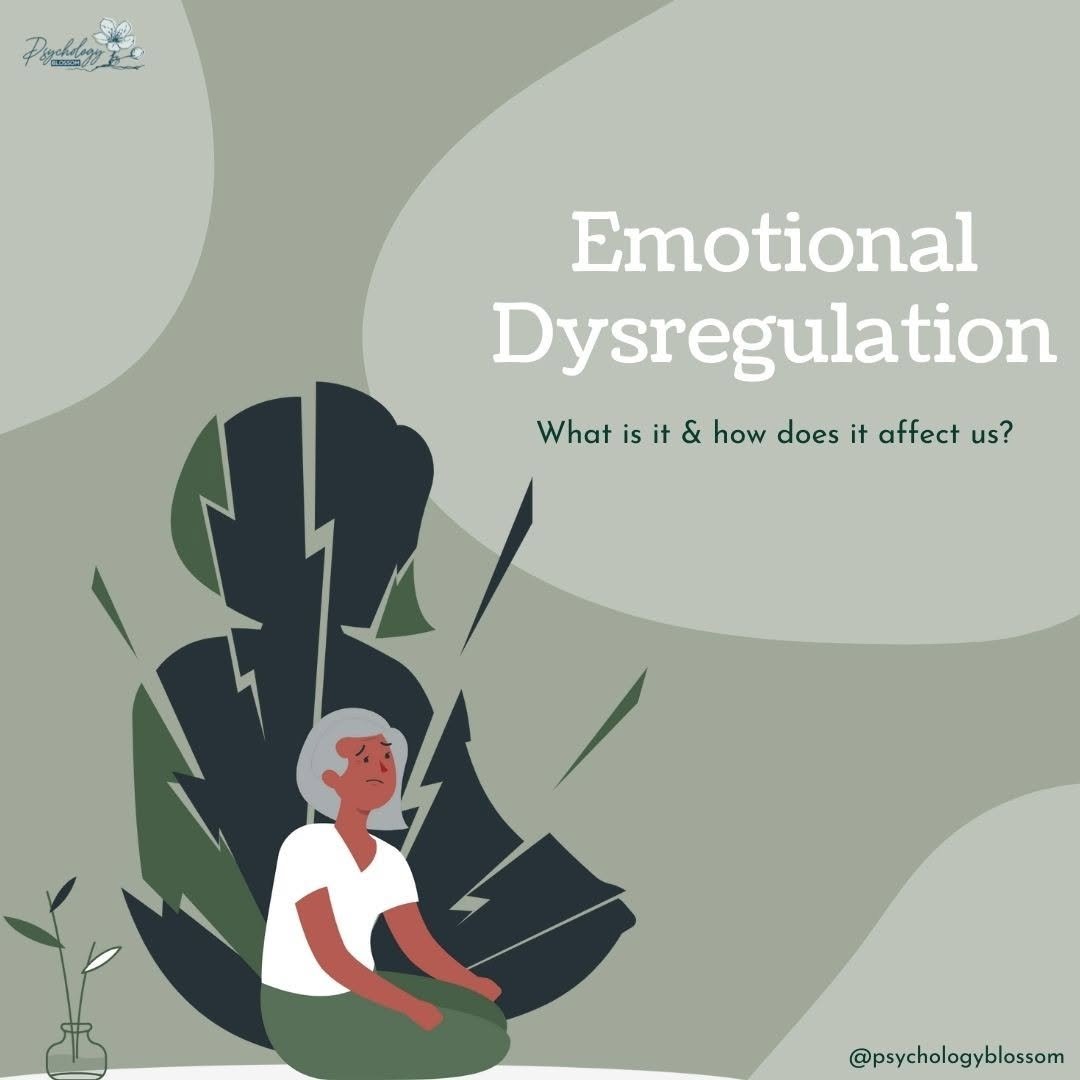Emotional Dysregulation: Understanding Symptoms, Causes, and Treatment
Emotional Dysregulation refers to experiencing emotions more intensely than most people, often swinging between low moods resembling depression and high moods resembling mania. Individuals may struggle to manage these states, especially under triggering circumstances, leading to confusion and difficulty recognising what they feel. Emotional dysregulation can occur as part of psychiatric disorders or independently, impacting relationships, self-image, and overall functioning.
What Might Occur During an Episode of Emotional Dysregulation?
During episodes, emotions can become poorly regulated and disproportionately intense. For example, a cancelled social plan may be interpreted as rejection, resulting in overwhelming sadness. A minor disagreement in a store may lead to disproportionate anger. These extreme reactions, although arising from everyday events, feel very real to the individual and can damage relationships and self-esteem.
Signs and Symptoms
Common signs include excessive or prolonged emotional reactions, severe depression or anger, intense shame or anxiety, and self-destructive behaviours such as self-harm, substance misuse, or impulsive sexual behaviour. Troubled relationships, inconsistent eating habits, and suicidal ideation may also occur. These patterns can destabilise work, studies, and social life, leaving individuals vulnerable to further distress.
Is Emotional Dysregulation a Disorder?
Emotional dysregulation itself is not classified as a disorder but often appears as a symptom within conditions such as Attention Deficit Hyperactivity Disorder (ADHD) and Bipolar Disorder. Because intense emotions feel unmanageable, individuals may adopt harmful coping strategies, including self-injury or substance misuse. At times, overwhelming states may lead to dissociation or temporary disconnection from reality. Recognising that dysregulation is a symptom helps shift focus towards support and treatment rather than stigma.
Emotional Dysregulation in ADHD
In ADHD, difficulties with attention, hyperactivity, and impulsivity often extend to emotional regulation. Emotional impulsivity and frequent temper outbursts stem from delayed communication between the prefrontal cortex, which governs decision-making, and the brain’s reward system. This weak connection impairs the ability to pause, reflect, and respond calmly, making everyday frustrations feel unmanageable. While the exact causes of ADHD remain uncertain, brain function differences play a major role in both cognitive and emotional symptoms.
Emotional Dysregulation in Bipolar Disorder and Borderline Personality Disorder
Bipolar Disorder and Borderline Personality Disorder (BPD) both involve emotional dysregulation. In Bipolar Disorder, chemical imbalances and genetic predisposition explain cycles of extreme highs (mania or hypomania) and lows (depression). In BPD, early trauma, attachment disruptions, and altered brain chemistry contribute to unstable self-image, turbulent relationships, and rapid mood swings. While both conditions share features of mood dysregulation, BPD often centres more on relationship instability and self-concept challenges.
Can Emotional Dysregulation Exist Without a Disorder?
Yes, emotional dysregulation can occur even without a formal diagnosis. Trauma, neglect, or attachment disruptions in childhood can interfere with learning healthy coping skills, increasing vulnerability later in life. Temperament also plays a role: individuals who are slow to adapt or more withdrawn may need additional time and strategies to regulate emotions effectively. Even without a diagnosable disorder, emotional dysregulation can significantly impact wellbeing and may benefit from structured therapeutic support.
Treatment Options
✽ Medications
Medication can reduce the intensity of symptoms when emotional dysregulation appears within broader psychiatric conditions. Stimulants may address ADHD-related dysregulation, antidepressants can stabilise depressive symptoms, and antipsychotics may be used to control manic or psychotic episodes. All prescriptions must be closely monitored by healthcare providers for safety and effectiveness.
✽ Dialectical Behavioural Therapy (DBT)
Dialectical Behavioural Therapy (DBT) is widely recognised as one of the most effective treatments. It emphasises mindfulness, emotional awareness, and acceptance while teaching practical coping skills. Core DBT components include:
- Increasing mindfulness of emotions and external situations
- Improving self-image and self-worth
- Exploring healthier coping methods to replace harmful behaviours
By combining acceptance with behavioural change, DBT helps individuals reduce emotional intensity, build resilience, and restore balance in daily life.
Living With and Managing Emotional Dysregulation
Recovery is often a gradual process, involving self-awareness, therapy, lifestyle adjustments, and social support. Effective strategies may include journaling emotions to identify triggers, practicing relaxation techniques such as mindfulness or deep breathing, maintaining consistent routines, and cultivating safe and supportive relationships. Educating loved ones about emotional dysregulation also fosters understanding and reduces stigma. With treatment and commitment, individuals can develop tools to respond to emotions more flexibly, leading to greater stability and improved quality of life.
We recommend This Video to those who want to learn more about Emotional Dysregulation.
About Us
We are a team comprising psychologists based in Singapore endeavouring our best to prioritise our clients’ needs. When you embark on this journey with us, we take a collaborative approach where you and your psychologist work closely together, and listen to what you have to say — No judgments, and in a safe space. Meet our Team
Quick Links
Contact Us
150 Cecil Street #07-02 S069543
Opening Hours
Monday to Friday: 8am to 6pm
Saturday: 8am to 2pm
Sunday: 10am to 2pm (Online only)
Admin Hours
Monday to Friday: 8am to 5.30pm
Saturday: 8am to 2pm
© Copyright 2023 – Psychology Blossom | Privacy Policy | Terms


